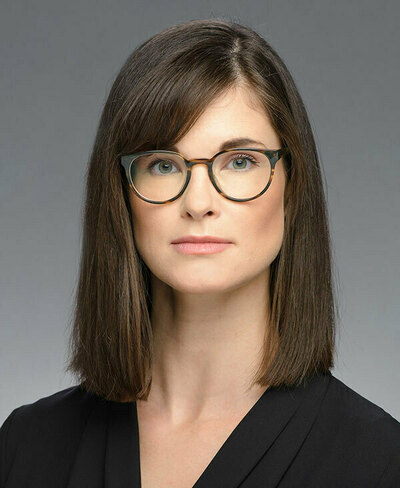
Notre Dame historian Sarah Shortall’s debut book, which chronicles an influential French theological movement that reimagined the Church’s role in the public sphere, has now earned four awards in the 10 months since it was published.
The assistant professor of history has received the Giuseppe Alberigo Junior Scholar Award from the European Academy of Religion, the Best Book Award from the College Theology Society, the Laurence Wylie Prize in French Cultural Studies from New York University, and the first place Book Award for History from the Catholic Media Association.
“I'm really gratified that it has seemed to appeal to different constituencies, both religious and secular readers,” she said. “Because a goal of the book is to bridge those divides. It’s encouraging.”
In Soldiers of God in a Secular World: Catholic Theology and Twentieth-Century French Politics, Shortall traced the origins and evolution of the nouvelle théologie, or new theology, a movement of Jesuit and Dominican priests that reformed the Catholic Church’s relationship to public life, political activism, and secular philosophy in 20th-century France.
The idea for the book formed in graduate school as she read about European intellectual history, French history, and Catholic theology in preparation for comprehensive exams.
“I was struck by how much overlap there was between the theologians I was reading about and what I was studying in my history fields,” she said.
One of those theologians, Jesuit priest Henri de Lubac, had a leading role in the resistance in France during World War II. Shortall wanted to understand the relationship between his theology and his political activism.
“That was the genesis of the book,” she said. “What is the relationship between theology and politics in a secular political context? And France is famously one of the most robustly secular societies in the world.”
During World War II, theologians in France initially got their resistance messaging published — despite the censorship of the Vichy regime — by coding the message in the language of theology.
Certain ideas that would typically be dismissed as politically inconsequential, Shortall found, became powerful because of the fact that they claimed to be above politics.
“It was a way of getting around the censor and, by presenting their resistance message as a spiritual rather than a political project, it authorized them to intervene in these questions, which otherwise might seem outside of their purview as priests,” Shortall said.
Her doctoral dissertation on the topic — “Soldiers of God in a Secular World: The Politics of Catholic Theology, 1905–1962” — also earned recognition, winning the 2015 Harold K. Gross Prize for the best history dissertation at Harvard University.
Shortall’s next book will focus on, among others, Pierre Teilhard de Chardin, an unorthodox figure she featured in Soldiers of God in a Secular World. The Jesuit priest and paleontologist blended science and Christianity and believed the human race was evolving toward spiritual unity.
Notre Dame, she said, has been an ideal place to undertake her research.
“Being here has been crucial to the success of my first book,” she said, adding that colleagues graciously read the entire draft manuscript and provided helpful feedback. “I’m conscious of how valuable it’s been to be at Notre Dame.”
As she delves further into her work, she continues to see parallels between pressing issues in 20th-century France and today — especially on questions of religion and public life.
“The work of these theologians is a testament to the importance of religion playing a robust role in the public sphere,” she said, “but also the danger of tying the Church and its teachings to a particular political project — which was something these figures always criticized, on both ends of the political spectrum.”


